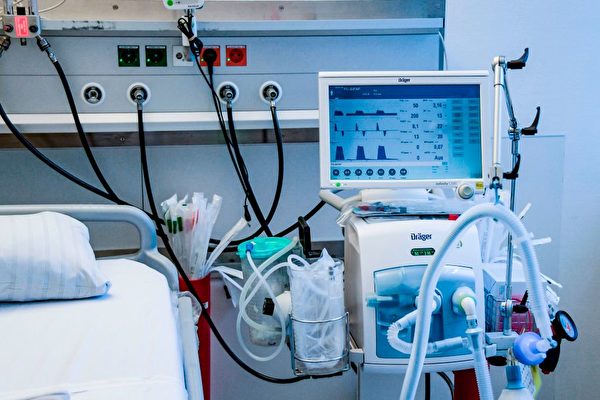Recently, the Chinese Ministry of Finance issued new regulations restricting the participation of certain EU-imported medical devices in government procurement, sparking widespread concern in the industry about the direction of Sino-European economic and trade relations and the operational risks of China’s medical system. Many scholars and medical professionals have pointed out that while this policy is a response to recent trade actions by the EU, it may end up making ordinary patients the biggest victims.
According to the announcement released on July 6th by the Chinese Ministry of Finance, for government procurement projects with budgets exceeding 45 million RMB involving imported medical devices, special approval procedures must be followed. EU companies (excluding joint EU-China ventures) are not allowed to participate in the bidding process. If non-EU companies supply products that contain parts manufactured in the EU, the value of those components must not exceed 50% of the total contract amount. In cases where the “procurement demand can only be met by EU products,” the policy allows for special approval applications, but this does not apply retroactively to previous projects.
An informed source familiar with the fiscal system revealed to Dajiyuan that this measure primarily targets the recent anti-subsidy investigations by the EU against China’s electric vehicles and industrial products, which are seen as retaliatory responses from the Chinese side. However, the impact on Chinese patients is deemed significant.
Last November, the European Commission announced the imposition of a five-year tariff on pure electric cars imported from China. On June 20th this year, the EU furthered similar measures by excluding Chinese enterprises from public procurement of medical equipment valued at over 5 million euros, citing it as a way to encourage China to end discriminatory treatment of medical equipment produced for the EU.
Regarding China’s restrictive policy, economist Fang Min from Peking University told Dajiyuan, “The EU still serves as a major source of imports for China in areas such as medical imaging, interventional equipment, and neurosurgical systems. In the short term, this policy may put pressure on domestic medical institutions in terms of equipment updates and procurement but could potentially drive the development of domestic alternatives in the medium to long term.” However, he also warned that if the actual gap in core technology and materials is ignored, the policy may lead to prolonged research and development cycles, strained medical resources, with the ultimate cost being transferred to frontline medical institutions and patients.
Retired orthopedic surgeon Li Fanglin from Huadong Hospital in Shanghai pointed out that while the policy includes exemption mechanisms, the high budget threshold and complex approval procedures may prevent some hospitals from smoothly acquiring the high-end equipment they need. “If the policy is too rigidly enforced, it could affect doctors’ treatment strategies and equipment update efficiency, ultimately compromising the rights of patients.”
Having an economic background, Li Fanglin further stated that although China’s domestically produced high-end medical devices have made technological advancements, some specific fields such as neurology and ophthalmology are still challenging to fully replace with European products. “The long-term goal of this policy is to promote domestic substitution, but the current clinical reality and urgent patient needs should not be ignored; otherwise, it will only cause suffering for the common people.”
In frontline medical practice, the impacts of this policy have raised concerns among medical professionals. A retired surgical specialist who previously worked at Ruijin Hospital in Shanghai expressed to a reporter, “Restricting the procurement of high-end medical equipment may lower surgical precision and safety. Many hospitals heavily rely on European and American brands for neurosurgery and advanced imaging systems, and if procurement is limited, it will directly affect clinical operations.”
Patients have also voiced their anxieties. Patients from Chengdu, Wuhan, and Taiyuan have told Dajiyuan that they oppose this “harmful to the people” trade retaliatory measures. Mr. Chen, a patient from Taiyuan, Shanxi, who is being treated for macular degeneration using injections imported from Germany and must pay for them out of pocket, expressed concern, “Will the supply be affected if the government no longer procures this medication? As an ordinary patient, I am very worried.”
In response to public concerns, scholar Fang Min urged the Chinese authorities to establish scientific evaluations and flexible mechanisms to avoid deviations between the “policy intent” and the “actual effects.” Ensuring the accessibility of healthcare and preventing ordinary people from bearing excessively high costs should be prioritized.

